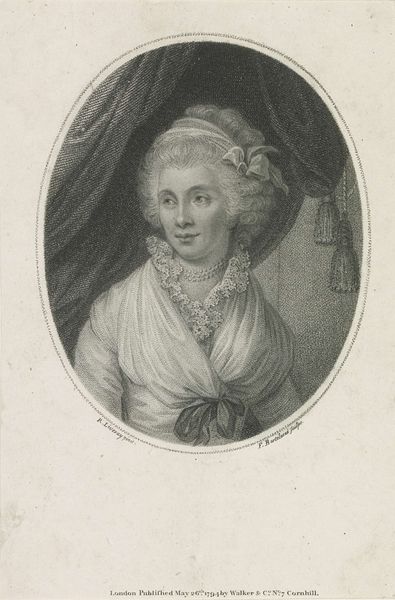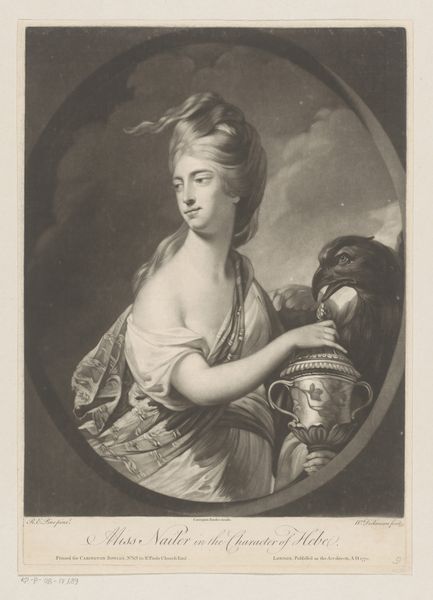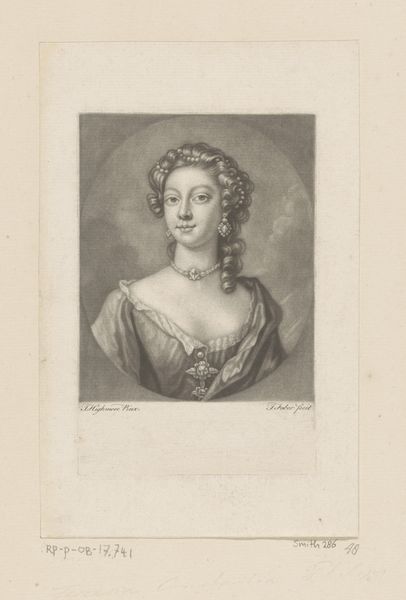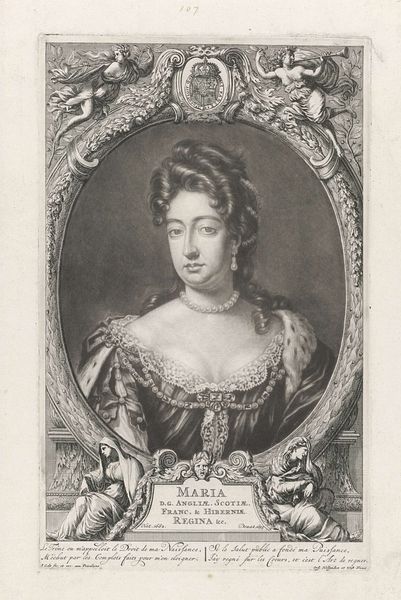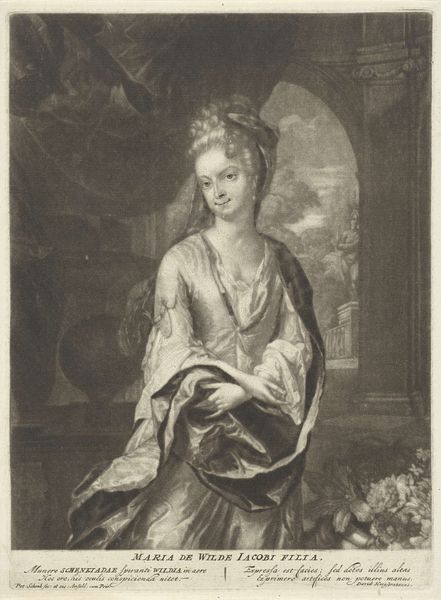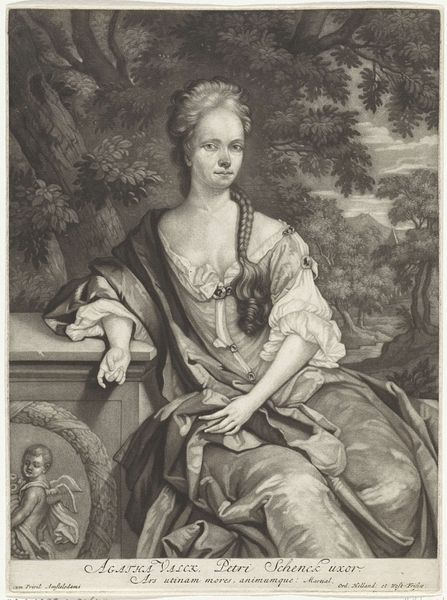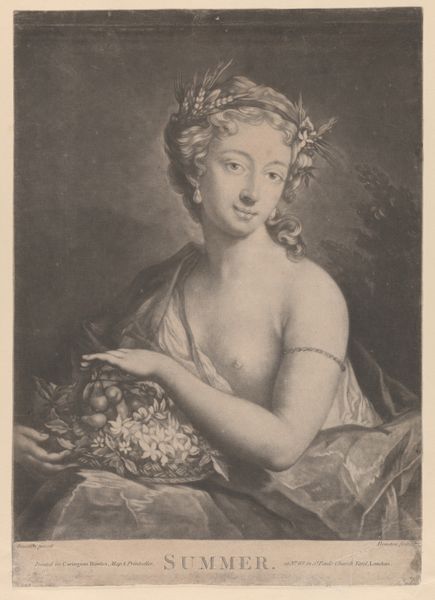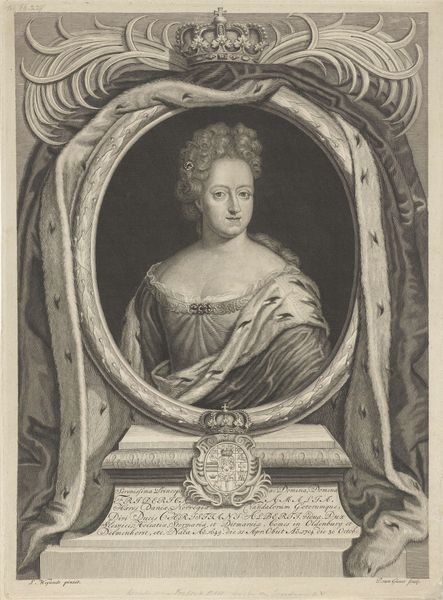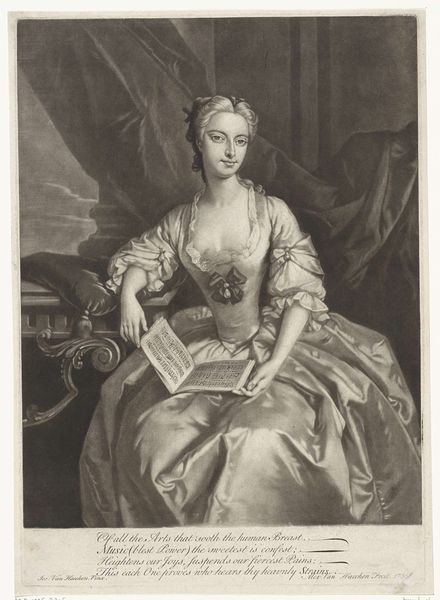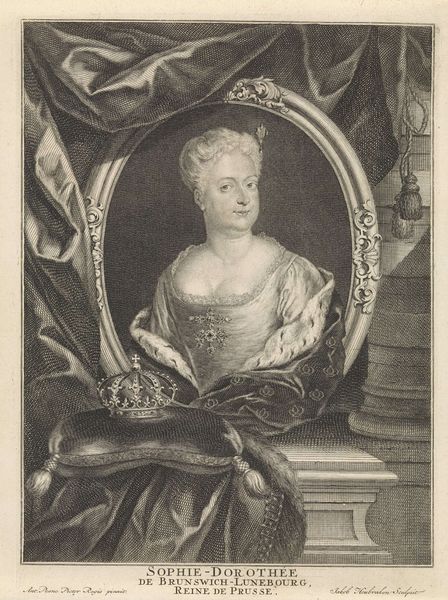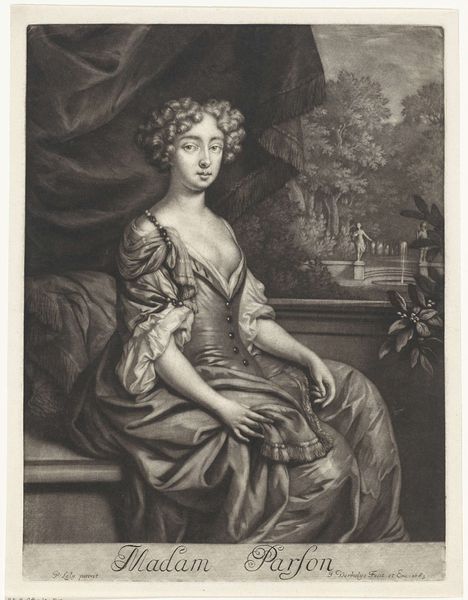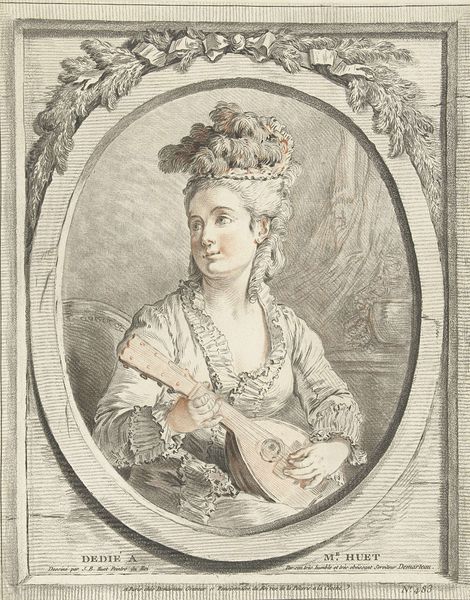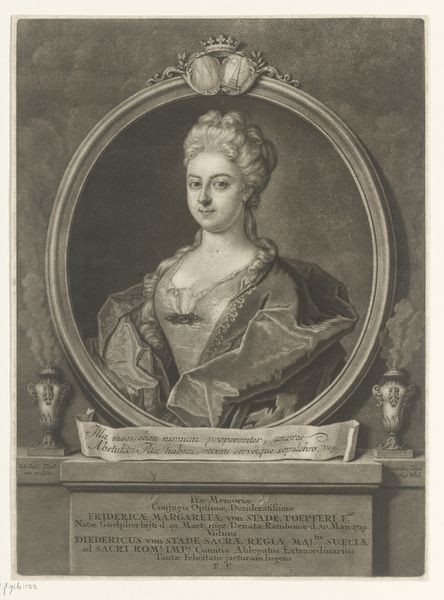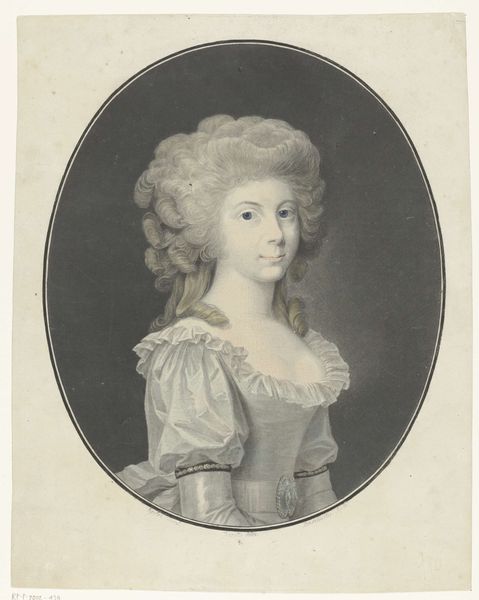
print, engraving
#
portrait
#
pencil drawn
#
neoclacissism
# print
#
figuration
#
pencil drawing
#
portrait drawing
#
history-painting
#
engraving
Dimensions: 200 mm (height) x 133 mm (width) (bladmål)
This portrait of Caroline Mathilde was created by Marie Anne Bourlier using etching and engraving, two printmaking techniques that were very popular at the time. The fine lines and tonal gradations you see here result from the careful application of acid to a metal plate, a process known as etching. The artist then uses a burin, a specialized tool, to engrave details by hand, pushing the metal aside to create crisp, precise lines. These processes speak volumes about the status of image-making in the 18th and 19th centuries. Printmaking allowed for the relatively inexpensive creation of multiple images, making art more accessible to a broader audience than unique paintings could ever be. It was a crucial part of the growth of visual culture and the spread of ideas. The labor-intensive nature of etching and engraving also highlights the skill and craft involved in producing these images, reminding us that even reproductive media require artistry and expertise. By considering these aspects, we gain a deeper appreciation for the complexities of artistic production during this period.
Comments
No comments
Be the first to comment and join the conversation on the ultimate creative platform.
